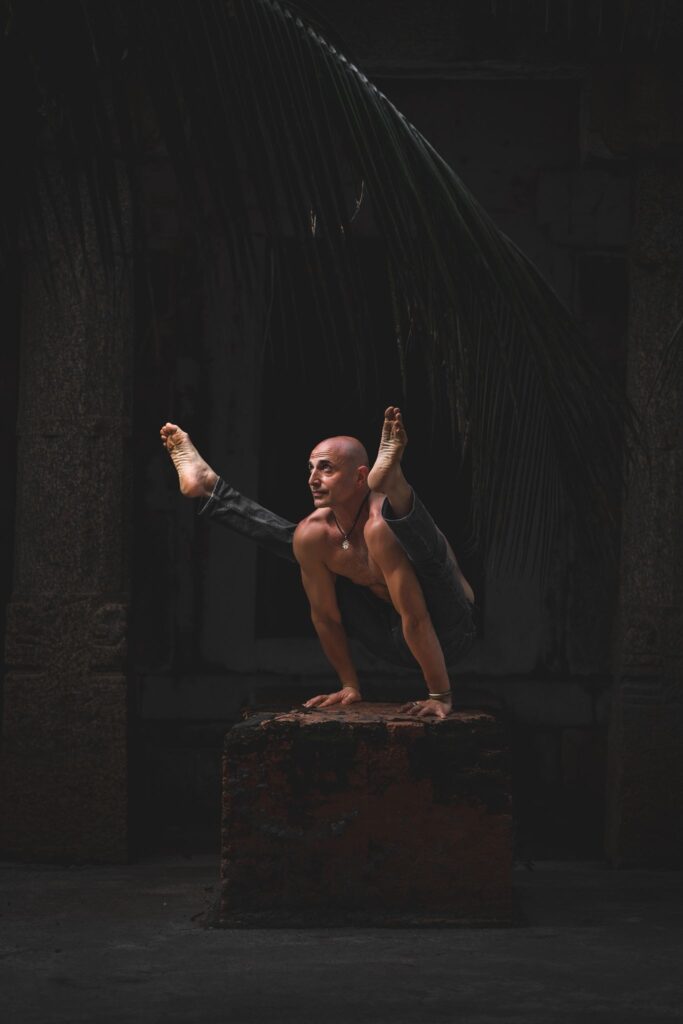About ashtanga yoga

“If A Person Can Breath They Can Do Yoga”
Developed by Sri K. Pattabhi Jois in conjunction with his teacher Sri T. Krishnamachrya in the 1930s, Ashtanga Vinyasa Yoga is a physical and dynamic form of hatha yoga. The practice involves a set series of poses that are linked together by movement and breath known as vinyasa. There Are six Series or levels Of Ashtanga Yoga starting with the primary series by which the student progresses at their own pace with the guidance of a teacher. Ashtanga Yoga utilizes the Trishtana Method—focus of attention or action on three main places: pose (asana), breathing (pranayama), and gaze (dristhi). Asanas purify, strengthen, and give flexibility to the body. Breathing must be steady, with an even inhalation and exhalation, and performed using correct energetic locks (bandhas). And by fixing the gazing point, the mind is stabilized and becomes less distracted creating mental clarity and inner peace.
“When yoga practice is sustained with great diligence and dedication over a long period of time, the heat generated from it burns away these poisons [desire, anger, delusion, greed, envy, and sloth], and the light of our inner nature shines forth.”
The word Ashtanga is composed of two Sanskrit words, “Ashto” and “Anga.” “Ashto” refers to the number eight, while “Anga” means limb or body part. As outlined in the Yoga Sutras- the authoritative text which defines the philosophy and practice of yoga, this is an eight-part path which, if followed, leads to self-awakening and helps you live a meaningful life.
The Eight Limbs of yoga are:
Yama(Ethical Living)
Niyama (Positive Habits/Observances)
Asana (Yoga Postures)
Pranayama (Breath Control/freedom)
Pratyahara (Withdrawal Of The Senses)
Dharana (Concentration)
Dhyana (Meditation)
Samadhi (Complete Stillness Of The Mind)
The first five limbs are external meaning we actively practice them on our yoga mats or as we conduct ourselves in the world. The final three limbs of Ashtanga yoga arise spontaneously from the sustained practice of the previous limbs, leading the practitioner to discover their highest human potential!

FAQ
Most frequent questions and answers
Yoga is a physical, mental, and spiritual discipline that originated in ancient India. It involves various physical postures (called asanas), breath control (pranayama), and meditation practices to improve flexibility, strength, and relaxation, as well as achieve inner peace.
Yoga can have a number of benefits for both physical and mental health. It can help improve flexibility, strength, and balance and reduce stress, anxiety, and depression. It has also been shown to have positive effects on heart health, chronic pain, and sleep quality.
If you’re new to yoga, it’s a good idea to start with a beginner’s class or workshop, either in-person or online. This will give you a chance to learn the basic poses and techniques and get a feel for the practice. It’s also a good idea to let your instructor know if you have any injuries or physical limitations, so they can help you modify the poses as needed.
You don’t need to be fit or flexible to start practicing yoga. One of the benefits of yoga is that it can help improve both of these things over time. Just start where you are, and don’t worry about comparing yourself to others in the class. The important thing is to listen to your body and do what feels comfortable and sustainable for you.
Wear comfortable, stretchy clothing that allows you to move freely. Avoid wearing too baggy or loose clothes, as they can get in the way of your movements. It’s also a good idea to bring a towel and a water bottle to class and to remove any watches or jewelry that might get in the way.










